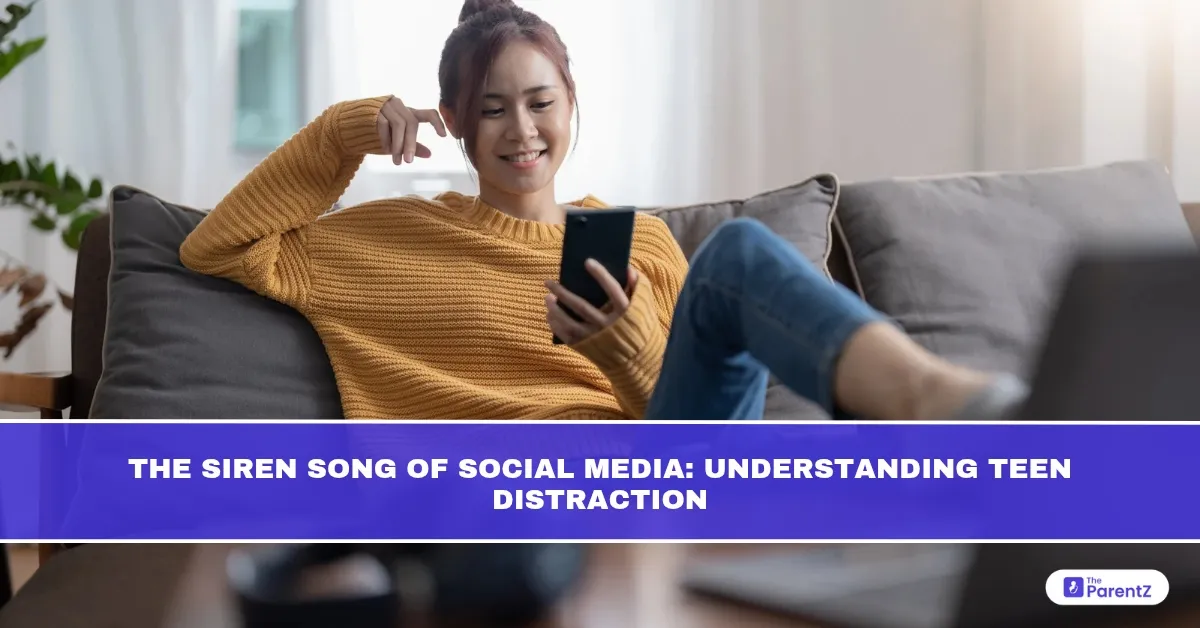"Mom, I'll start homework in five minutes. Just need to reply to this message."
Two hours later, your teen is still hunched over their phone, scrolling endlessly while assignments sit untouched. Sound familiar?
That homework-delaying five minutes somehow stretches into hours. The quick check before bedtime turns into a midnight scroll session. The dinner conversation keeps getting interrupted by notification glances.
Welcome to parenting in this era, where the most powerful force competing for your child's attention isn't their friends or even video games – it's the carefully crafted, algorithmically perfected world of social media. Today's parents are raising the first generation that has never known a world without these digital sirens calling constantly from their pockets.
Why Call It a "Siren Song"?
In ancient Greek mythology, sirens were creatures whose enchanting songs lured sailors to shipwreck on rocky coasts. The comparison to social media is spot-on. These platforms weren't designed to be slightly interesting - they were engineered to be completely captivating.
Just like those mythical sirens, social media calls to our kids with an irresistible song, promising connection, entertainment, and validation. And just like those ancient sailors, our teens often find themselves "wrecked" - missing deadlines, losing sleep, or feeling anxious when they finally look up from their screens.
What Makes Social Media So Addictive for Teens?
The Dopamine Factory
Every notification, like, and comment triggers a small hit of dopamine - the brain's feel-good chemical. The same one involved in other addictive behaviors. Apps are designed to maximize these micro-rewards, creating what scientists call "variable reward schedules" - the most addictive pattern possible.
FOMO Is Real
For today's teens, being offline doesn't just mean missing updates - it means potentially missing their social existence. When friend groups coordinate plans, share inside jokes, and build relationships online, staying away feels impossible. Gen Z and Alpha don't separate "online friends" from "real friends" - it's all just friendship now.
Identity Development
Teens are figuring out who they are, and social media offers endless opportunities to try on different identities, get feedback, and find communities. Whether it's aesthetic TikTok niches, gaming Discord servers, or fan communities, these platforms provide belonging during the most socially uncertain years.
Algorithm Quicksand
Modern feeds are eerily good at predicting what will keep your teen scrolling. Each video, post, or reel they watch trains the algorithm further, creating a personalized content stream that seems to read their mind. Before they know it, they've spent hours in an algorithmic rabbit hole tailored just for them.
What Today's Parents Need to Understand
It's Not Like Your Teen Magazines or TV Shows
When we were kids, distractions had natural endpoints. TV shows ended. Magazines had a last page. Today's feeds are literally infinite, designed to never give your teen a natural stopping point.
Attention Is the Currency
If something is free, you're not the customer - you're the product. Social media companies make money by capturing and selling attention. Every second your teen spends scrolling represents real money to these platforms, which is why they've perfected the art of keeping eyes glued to screens.
The Social Pressure Is Intense
For many teens, not being on social media would be social suicide. Their social currency, reputation, and even academic collaboration often happen on these platforms. Asking them to simply "log off" is asking them to potentially remove themselves from their peer group.
Their Brains Are Still Developing
The prefrontal cortex (responsible for impulse control and decision making) isn't fully developed until the mid-20s. We're asking teens to self-regulate their usage of apps specifically engineered by adults to override self-regulation.
How Can Parents Actually Help?
Get Curious, Not Critical
Instead of eye-rolling when they spend hours on TikTok, ask questions: "What creators do you follow?" "Can you show me what's trending?" Understanding their digital world builds trust and communication.
Co-Create Boundaries That Make Sense
Work together to set reasonable limits. Maybe phones go in a basket during dinner and homework time. Maybe certain apps get deleted during exam weeks. The key is collaboration, not dictation.
Model What You Preach
Teens have a radar for hypocrisy. If you're doom-scrolling while telling them to get off their phone, your message loses all credibility. Family tech breaks benefit everyone.
Acknowledge the Benefits
Social media isn't all bad. Many teens find support, learn new skills, explore interests, and build meaningful connections online. Recognizing this helps move conversations beyond simple "screen time is bad" arguments.
Focus on Balance, Not Bans
Complete prohibition rarely works. Instead, help teens develop media literacy and self-awareness about how different platforms make them feel. Sometimes, asking, "Did that scrolling session make you feel better or worse?" can spark meaningful reflection.
Create Compelling Alternatives
Nature abhors a vacuum. If social media meets legitimate needs for connection, entertainment, and identity exploration, ensure your teen has other ways to meet these needs. Family adventures, in-person friend time, and fulfilling hobbies can compete with even the most compelling feeds.
Conclusion
The siren song of social media is very powerful, but it doesn't have to lead to a shipwreck. By understanding the unique challenges today's teens face, parents can help them navigate these tricky digital waters, not by dragging them back to shore against their will but by teaching them to steer their own ship with awareness and balance.





Be the first one to comment on this story.